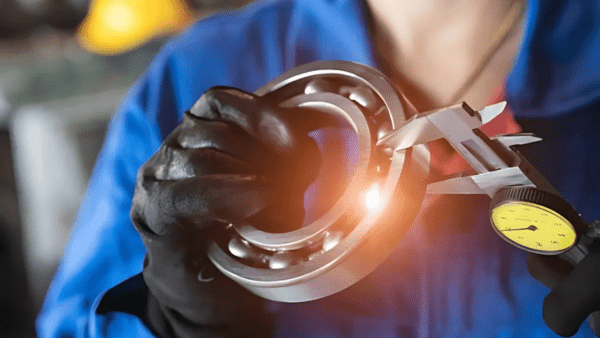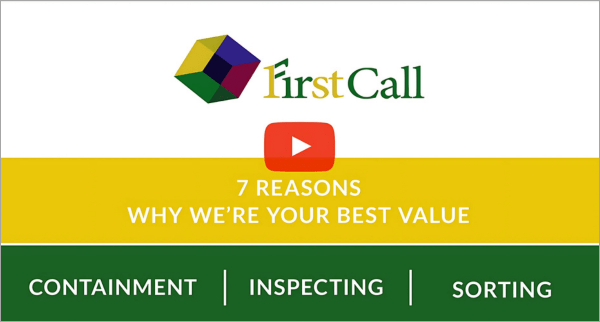Price Tag Trap: How Focusing on the Cheapest Parts Inspection Service Turns into a Costly Nightmare

In the fast-paced world of parts manufacturing, every decision can have a ripple effect on the bottom line. This is especially true when it comes to parts quality inspection. While it’s natural to want to find the most cost-effective solution, focusing solely on price when choosing a third-party sorting and containment provider can be a false economy. In fact, relying solely on price can lead to compromised quality control measures and result in escalated expenses in the long run.
When a supplier prioritizes a low-cost inspection service, several potential pitfalls arise:
Hidden and unexpected expenses
- Poor quality sorting: Opting for the cheapest service provider might mean compromising on the quality of the inspection. If the sorting and containment service isn’t thorough or accurate, it could lead to undetected defects, ultimately causing faulty parts to reach your production line and possibly your customers. This can result in recalls and rework costs, which are significantly more expensive than investing in a higher-quality inspection service initially.
- Inefficient processes: A low-cost service that lacks precision may utilize slower or less streamlined methods for sorting and containment. This results in increased processing time, and you incur extra costs in terms of time, labor, and resources, which can quickly surpass the initial savings from choosing a cheaper service.
- Production disruption: If defective parts bypass the inspection process and make it to the assembly line, production disruptions are inevitable. Halting the production line to address quality issues not caught earlier can lead to significant downtime. The costs associated with production stoppages, including idle labor, wasted materials, and missed deadlines, can be substantial.
Long-term consequences
- Supplier to customer reputational risks: If defective parts reach end-users due to inadequate sorting and containment, it can have severe consequences for the brand’s reputation and customer satisfaction. Recalls, warranty claims, and negative reviews due to faulty parts can tarnish a company’s image, leading to a loss of trust in customers. Repairing a damaged reputation is not only financially taxing but also time-consuming.
- Damaged supplier relationships: Choosing the cheapest provider solely based on price can send a message to automobile suppliers that quality is not a priority. This can harm long-term supplier relationships and potentially lead to unreliable supply chains and disruptions in production.
- Long-term financial impact: While a cheaper service might seem economical initially, investing in a reputable, reliable, and quality-focused inspection service provides long-term savings. Such a service reduces the likelihood of recurring quality issues, mitigates risks, and prevents costly repercussions like recalls or legal implications.
A holistic approach to cost-effective quality inspection
In the dynamic landscape of the industrial and automotive parts industry, the quest for cost-effectiveness should not overshadow the critical importance of comprehensive and reliable quality inspection processes. Wise parts suppliers recognize the broader spectrum of considerations that can profoundly impact their bottom line and overall operational success. These considerations include factors such as:
- Expertise and experience: Look for a provider with a proven track record and reputation, especially in the automotive industry, and a deep understanding of quality requirements. A history of positive testimonials can be indicative of the reliability and effectiveness of the inspection service.
According to the American Society for Quality (ASQ), manufacturers lose 15–20% of their revenue due to poor quality—losses
that experienced inspection providers can help prevent.
- Responsive and flexible: In the dynamic environments of parts supply, inspection services must be responsive, flexible, and scalable to meet changing production demands. A quality provider should adapt swiftly to specific needs, offering tailored solutions in time-sensitive situations, ensuring seamless alignment with evolving production requirements.
According to Deloitte, manufacturers lose an estimated $50 billion annually to unplanned downtime—much of which is caused by issues that can be quickly mitigated when support teams respond fast and effectively.
- Comprehensive inspection procedures: Consider the depth and scope of the inspection protocols. A thorough inspection process that covers every facet of part quality, including dimensional accuracy, material integrity, and functional performance, is vital to prevent defects from slipping through undetected.
Defective parts cost automotive OEMs $8.4 billion annually in warranty claims—highlighting the importance of thorough inspection
to catch issues before they leave the supplier floor.
- Technical expertise and innovation: Look beyond the cost and assess the technical expertise and innovation capabilities of the inspection service. A provider that stays abreast of industry advancements and employs cutting-edge technologies can offer more effective and real-time quality control solutions.
Companies that adopt advanced inspection technologies see up to 50% fewer defects and 20–30% higher throughput.
- Communication and reporting: Effective communication is key to a successful partnership. Choose a provider that offers transparent reporting mechanisms and communicates findings promptly. They should also have a leadership presence for centralized project contact, enhancing efficiency and communication. This facilitates swift decision-making and corrective actions, minimizing the impact of any quality issues.
Poor communication costs manufacturers an average of $62.4 million per year in productivity losses and delays.
- Compliance and certification: Ensure that the chosen provider adheres to industry standards and possesses relevant certifications. Compliance with quality management systems, such as ISO, reflects a commitment to delivering high-quality services.
Third-party partners with ISO 9001 certification help you mitigate compliance risk, pass customer audits, and meet OEM expectations for quality assurance.
In conclusion, while cost considerations are important, parts suppliers must prioritize the overall quality and reliability of third-party inspection services. Investing in a comprehensive, high-quality inspection process might seem more costly in the short term but can yield substantial savings by preventing defects, improving operational efficiency, and safeguarding the parts’ reputation in the long run.
Want to keep up with the latest quality insights and trends? Connect with First Call for relevant news in third-party quality inspection. Follow us on LinkedIn

